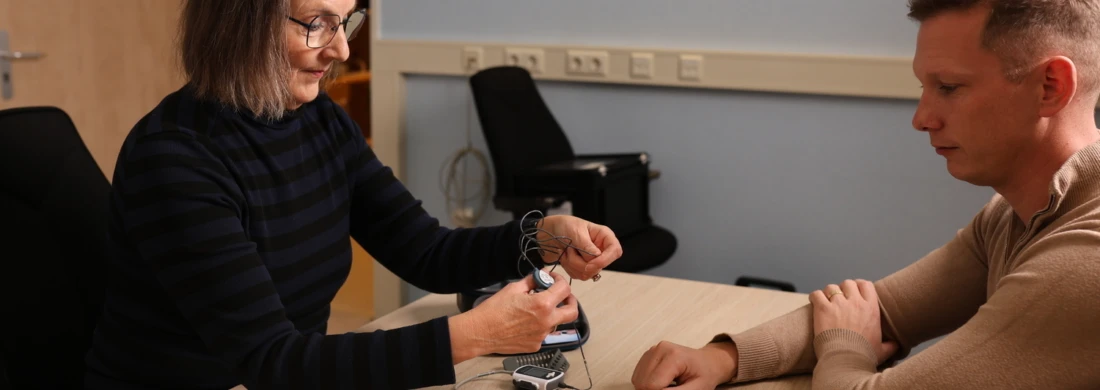Unusual or unwanted behaviors during sleep (parasomnias) occur in many forms. These range from talking in sleep, waking up in distress, and sleepwalking to acting out dreams or experiencing nightmares. Such behaviors can significantly disrupt the sleep of both the patient and their partner and may lead to unpleasant or dangerous situations. Poor sleep quality can also cause daytime symptoms.
Nocturnal movement restlessness can negatively impact sleep quality, often involving uncontrollable and repetitive limb movements. In some cases, this nighttime restlessness is caused by sleep-related epilepsy. In these situations, the Center for Sleep Medicine closely collaborates with the Academic Center for Epileptology.
For mild forms of parasomnia or nocturnal movement restlessness, diagnosis and, if necessary, treatment can be managed by a general practitioner or a general hospital. However, in cases of severe symptoms, referral to Kempenhaeghe may be beneficial.
The Center for Sleep Medicine offers a specialized care program. Most patients treated at the center have a complex sleep disorder that is not easily managed. Additionally, multiple sleep disorders may occur simultaneously. Treatment involves various experts, including medical specialists, psychologists, and behavioral therapists. If needed, social work, vocational or educational guidance, and paramedical support are also available.
